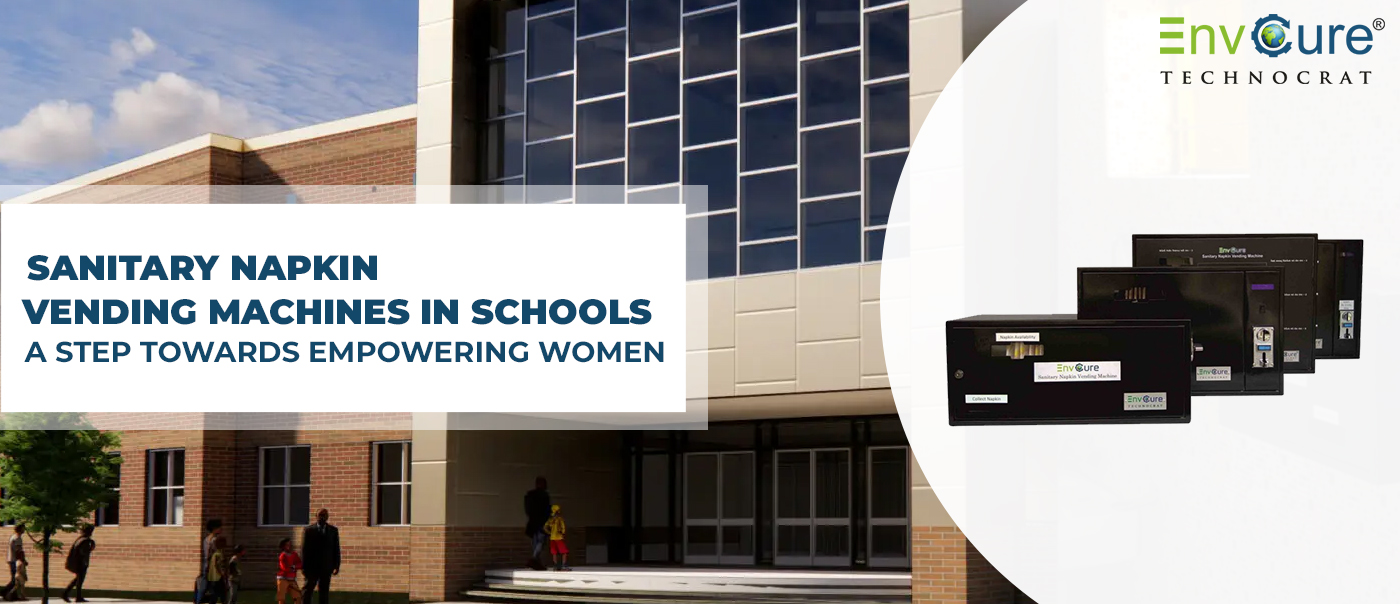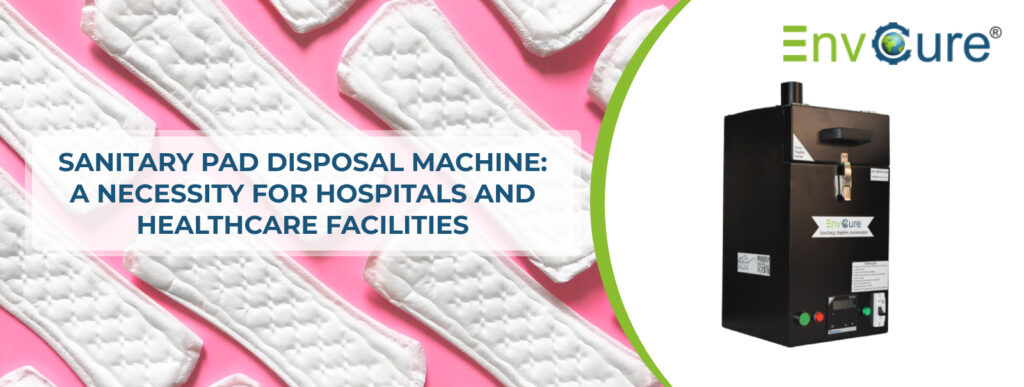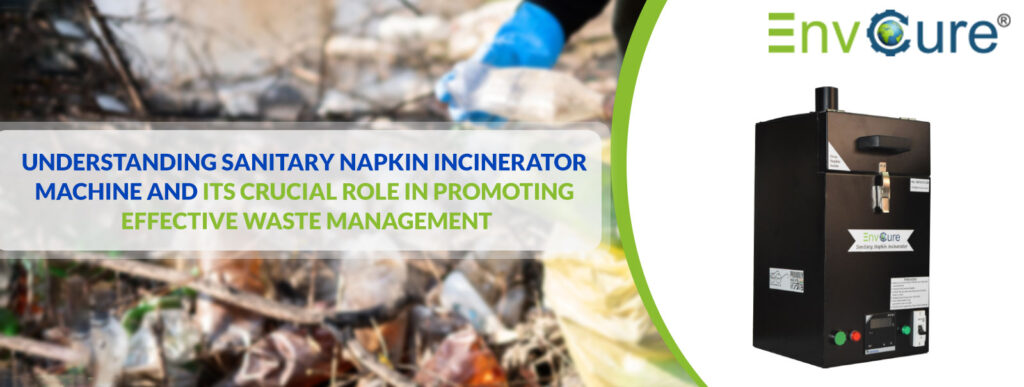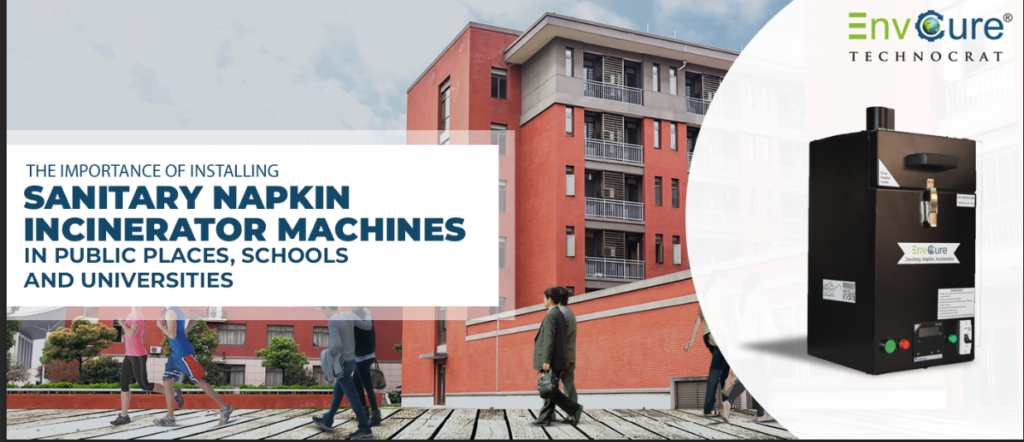In recent years, the introduction of sanitary napkin vending machines in schools has sparked widespread discussion and gained traction as a progressive initiative. By providing convenient access to menstrual hygiene products, these machines aim to empower young women, break stigmas, and promote gender equality. This article delves into the benefits of installing sanitary pad vending machines in educational institutions and their potential long-term impact on society.
Tackling Menstrual Taboos and Stigma in India
India, a diverse and culturally rich country, is no exception when it comes to menstrual taboos and stigma. Deep-rooted cultural beliefs and traditions have created an environment where menstruation is often regarded as impure and shameful. In many communities, girls and women are subjected to various restrictions during their periods, such as being barred from entering places of worship, participating in family events, or even touching certain food items. These beliefs perpetuate a culture of silence, making it difficult for young girls to discuss their menstrual health and seek support.
Introducing sanitary napkin vending machines in Indian schools is a vital step towards challenging these taboos and fostering open dialogue about menstruation. By making these essential products readily available within educational institutions, we can begin to normalize conversations around menstruation and empower young girls to voice their needs and concerns.
Steps To Reduce Absenteeism and Dropout Rates in Schools
Menstruation-related challenges are one of the leading causes of absenteeism and dropout rates among young girls in schools worldwide. Installing a sanitary pad vending machine in schools can play a significant role in reducing absenteeism and dropout rates by addressing the core concerns of menstruating students.
- Access to Sanitary Napkins
One of the primary reasons girls may miss school during their periods is the lack of access to affordable and hygienic menstrual products. A sanitary napkin vending machine can fill this gap by providing students with a discreet and reliable source of sanitary napkins within the school premises. This convenience enables girls to manage their periods effectively while at school, increasing their confidence and attendance.
- Improved Facilities for Menstrual Hygiene Management
Complementing the vending machines with clean and well-maintained restroom facilities, including private spaces for changing and disposing of used sanitary napkins, can help girls feel more comfortable attending school during their periods. A supportive school environment that caters to the unique needs of menstruating students is crucial for reducing absenteeism and encouraging girls to focus on their education.
- Combatting the Fear of Embarrassment
The fear of staining clothes or being ridiculed due to menstrual mishaps can also contribute to girls missing school. By providing access to sanitary napkins and fostering a culture of understanding and support among students and staff, schools can alleviate these concerns, making girls feel more secure and confident while attending school during their periods.
- Fostering Academic Success and Personal Growth
By addressing the menstrual hygiene needs of students, schools can help girls maintain consistent attendance, leading to better academic performance, higher self-esteem, and increased opportunities for personal growth. As more girls stay in school and complete their education, they can break the cycle of poverty, contribute to the workforce, and become role models for future generations.
Steps To Cultivate a Supportive School Environment
A supportive and inclusive school environment is crucial for the overall well-being and success of all students, including those who menstruate. Integrating a sanitary pad vending machine into educational institutions demonstrates a commitment to addressing the unique needs of menstruating students and fostering a culture of understanding, empathy, and inclusivity.
- Acknowledging and Valuing Menstrual Needs
By installing a sanitary napkin pad machine, schools send a clear message to students that their menstrual needs are acknowledged, valued, and supported. This gesture helps create a sense of belonging and security for menstruating students, making them feel more comfortable and confident in their educational pursuits.
- Promoting Open Dialogue and Understanding
The presence of vending machines can encourage open dialogue about menstruation among students, teachers, and staff. Such conversations can help dispel myths and misconceptions, promote understanding, and contribute to a more empathetic school environment. By fostering open communication, schools can create a safe space where all students feel comfortable discussing their needs and concerns.
- Encouraging Gender Equality and Respect
When schools actively address the menstrual hygiene needs of their students, they contribute to the promotion of gender equality and the cultivation of respect among peers. Educating all students about menstruation, including boys, can help foster an environment where menstruating students are supported and respected, rather than marginalized or ridiculed.
- Empowering Students to Take Control of Their Health
Providing access to sanitary napkins and promoting menstrual health education empowers students to take control of their own well-being. This empowerment extends beyond the school environment, as students learn to make informed decisions about their health and well-being, ultimately leading to healthier and more confident individuals.
- Inspiring Positive Change in the Community
Schools that prioritize menstrual hygiene management and cultivate a supportive environment can inspire positive change within the broader community. By addressing the needs of menstruating students, schools can encourage parents, community members, and local organizations to challenge traditional beliefs and work together towards a more inclusive and equitable society.
EnvCure’s Impact on Menstrual Hygiene Management and Accessibility
EnvCure’s innovative sanitary napkin vending machine has the potential to revolutionize menstrual hygiene management by ensuring easy access to sanitary napkins for women and girls in various settings. By catering to the needs of corporate, educational, and public organizations, these vending machines are bridging the gap between women and the essential menstrual hygiene products they require.
With its user-friendly design, versatile payment options, and space-efficient structure, EnvCure’s vending machines are well-suited to meet the diverse needs of different environments. By offering both manual and automatic variants, the company ensures that organizations have the flexibility to choose the most suitable option based on their requirements and budget.
Conclusion
Take a step towards a healthier and more equitable future by choosing EnvCure’s sanitary pad vending machine for your organization. Together, we can break down barriers, promote menstrual hygiene awareness, and empower women to live their lives without any limitations imposed by menstruation.
Contact EnvCure today to learn more about their sanitary napkin vending machine and how they can benefit your organization or community. Embrace the change and make a lasting impact on the lives of women and girls around you.
Frequently asked questions:
Q.1: What is a sanitary napkin vending machine?
Ans: A sanitary napkin vending machine is a device that dispenses sanitary pads to women in need of menstrual hygiene products.
Q.2: Why is it important to have sanitary napkin vending machines in schools?
Ans: It is important to have sanitary napkin vending machines in schools to provide easy access to menstrual hygiene products for female students. This can help reduce absenteeism and dropout rates, as well as improve the overall health and well-being of young girls.
Q.3: How do these machines work?
Ans: Sanitary napkin vending machines work by accepting a form of payment, such as coins or tokens, and then dispensing a sanitary pad. Some machines may also include a mechanism for disposing of used pads.








